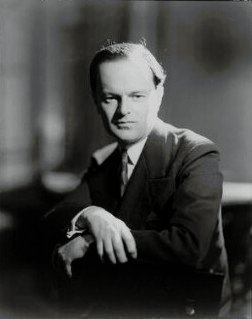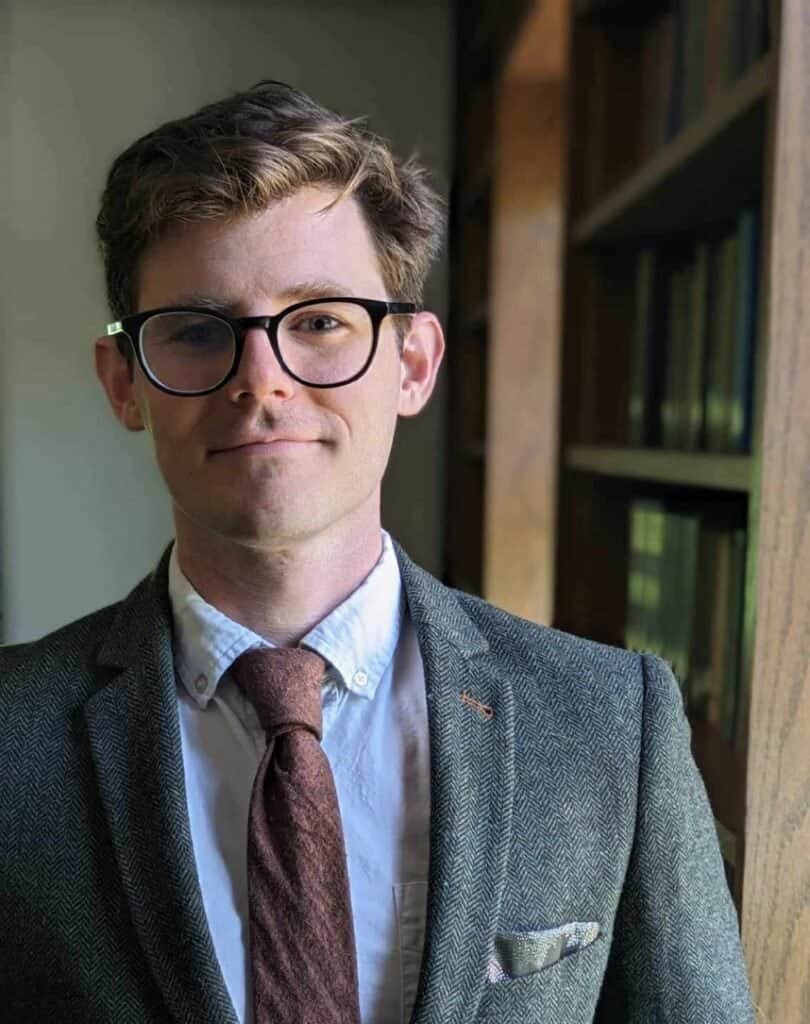By Joseph Charles MacKenzie
THE world once profited from public-facing academics, transformative teachers who knew how to open the popular mind and imagination to the grandeur of Western European culture. In the days of my youth, an aristocratic curator, collector, and art historian, Lord Kenneth Clark (1903-1983), quietly burst forth onto our diode-powered television screens. Sporting a worn tweed jacket and vintage Cambridge accent, Clark delivered his special area of knowledge to the public for its very first time: the whole story of Western civilization through what Ruskin called the “book of its art.”

Clark’s perduring masterpiece was affably entitled, Civilization: A Personal View (Harper & Row, 1969). Its attendant, thirteen-part, British television series made many of my generation the men that we are today. We were mere boys in 1969 (I was seven and impressionable) but Kenneth Clark excited us more than any of that decade’s purveyors of youth-targeted inanity ever could. In the still frothy wake of James Stourton’s recent biography, Lord Kenneth Clark: Life, Art, and Civilization (Knopf, 2016), the great English polymath is now being rediscovered by today’s crop of young, public thinkers.
Not since have I experienced anything quite like the intellectual excitement I felt then… until now.
For, just like Lord Kenneth—and with a similar spirit paired with a reservoir of knowledge both broad and deep—has come forward a young, mild-mannered, old-school gentleman of southern refinement, a professor of poetry whose looks and sartorial perfection might have graced a cover of Gentleman’s Quarterly in its better days.
The polished, soft-spoken man of the hour is Dr. Adam Walker, and he is rescuing poetry at a time of crisis in my sublime art. He himself may not know that, but he is. He is destined one day to give us a magnum opus as fine as any before him. Rumors are flying that he has at least one book already well in progress.

With his recent doctorate in English Literature from Harvard University, Walker has taken up the mission of drawing public attention to his own artisanal canons of classic English and American poetry. He is also giving his online viewership a simple, time-tested method of slow-reading immortal poems within their historical, philosophical, religious, and biographical contexts, all of which he delivers with an almost disconcerting, magisterial ease.
His vlogging output is an ongoing, comprehensive survey of English verse enhanced by demonstrations of the finest methodologies available for experiencing the best of our poets directly. He is thereby reviving national interest in poetry as well as one of its most important subgenres: my own sublime, but almost extinct, art of traditional lyric poetry.
Walker is a brilliant rediscoverer of the origins and progress of lyric verse, reading aloud beautifully “Caedmon’s Hymn” and “The Wanderer” as if the Saxon dialects in which these were written were his first language—even as he modestly declares his limitations in Old English. In one of his most lyrical moments, Walker has us following William Wordsworth’s footsteps along the verdant banks of a beautiful Welsh river, a vivid journey outside of time through one of the finest, self-reflective masterpieces in all the English: “Lines Composed a Few Miles Above Tintern Abbey.”
The exercise is more than a literary analysis. It is Walker’s typical way of inviting us to take a ceremonial pause from the deafening busyness of modern life, to look through the eyes of the poet upon “These plots of cottage-ground, these orchard tufts, / Which at this season, with their unripe fruits, / Are clad in one green hue…”
For my generation—likely the last to have received the Western European, humanistic tradition—the golden treasury Dr. Walker opens for us is not only familiar but loved. Nothing could be more heart-warming than to see a classically trained scholar handing down to a whole new generation of readers the entire world of English poetry, a lifetime project moving forward apace.
Walker has taken the Rolls Royce Silver Shadow of traditional pedagogy and turbo-charged it to the horsepower of a twelve-cylinder Jaguar XJS. He is running on all twelve of those cylinders, packing a maximum of literary richesse into an unforgiving internet format requiring brevity and concision. He teaches also in his Versed online community platform attracting an unusually erudite clientele.
Whatever the platform, a number of qualities set Walker apart, to include his attention to every conceivable aspect of poetry from rhetoric (he is outstanding in this area) to things like psychological progression in his interpretation of Coleridge’s “Frost at Midnight.” Within a slowly growing crowd of social media promoters of poetry possessing half his qualities at best, Walker’s over 160 (and counting) superb online presentations have thrown him into haut-relief. Well-hewn literary and critical aptitudes, unimpeachable standards of presentation, a continually updated store of bibliographic knowledge, and the undeniable charm of a bon enfant personality, have made Walker egregious.
Until the last days of my own academic career, such a disciplined and demanding approach was nothing other than the norm, one that was slowly slipping away before we awoke one day to find it gone. But if Dr. Walker is merely restoring a time-honored approach to teaching, how, then, can he be said to be remarkable? Perhaps “miraculous” would be a more descriptive term if one considers that the establishment from which Walker actually hails, managed to abolish this ideal of teaching decades before our hero was even born. Apart from their libraries, today’s post-humanistic institutions no longer possess the means to “form” the upper echelon of exceptionally gifted minds Walker undoubtedly embodied during his studenthood, because they have discarded those means.
On the other hand, the best students throughout history have always surpassed what their schools could offer. It is indeed miraculous that Walker has emerged unscathed, innocence and idealism intact, from a place that succeeded in erasing the very traditions that inform his work. He remains the dashing young champion of poetry that he must have been even before setting foot within our ruined temples of academia. There is also the fact that nature has dealt him, among other winning cards, the ace of a first-class mind coupled with the fortitude to master more than was required.
Walker himself is only too aware of the anti-humanistic virus that has eaten out our academic institutions from within, a situation inviting federal defunding of the humanities by that faculty’s mere, accidental association with the worst of what is taking place. On this particular topic I have never read a more perfectly articulated perspective than in his recent article, entitled, “Why the Universities are Killing the Humanities” posted in his Substack of August 28. In true Walkerean fashion, he draws immemorial wisdom from Bacon’s The Advancement of Learning and Milton’s Lycidas (just think on that!) to underwrite a metaphor-governed argument:
“The academy, which once served as a trust of public knowledge, a lighthouse, illuminating the darkness of ignorance and guiding others to the paths of wisdom, now serves as a tower, corrupted from within by its own insularity and pursuit of profit and now looks upon the shores below with disinterest or disdain.”
With his outgoing, convivial temperament and pastoral love for his subscribers, Walker is never so compelling on this point as when he addresses us directly. In a video posted July 3rd of this year, entitled, “The Academic in the Digital Age: Where Universities Went Wrong,” he unleashes:
“Many universities that once promised spiritual and intellectual formation, now promise financial prosperity. Institutions of learning, once the moral lifeblood of the nation, have become and are becoming businesses that wield their elitism as a marketing gambit.”
So, we have in Adam Walker a defender of academia’s vacated public and civic duty to preserve the wisdom of the past for the prudential use of the nation. What could be more in line with the central arc of the great Western tradition, if not that tranquillitas ordinis, tranquility of order, which Walker invites us to enjoy in everything from the structures of a Shakespearean sonnet to the intertextual relationships and patterns existing among the poets themselves, a kind of inter-referential exchange of intellectual discourse which Walker calls “this centuries old conversation.” Treating every poem as a precious window into the souls of the poets, he is letting us in on that conversation, and we are all ears. Walker’s deep love of his subject could not be more infectious.
After all, the major impulse of Florentine humanism in the Quattrocento was, indeed, civic and not remotely “academic” in that sniffy, French sense the seventeenth-century would later give to the term. The first medieval universities were established for the good of the entire world. They well succeeded in their mission of disseminating ideas like the “ideal city” and the humanizing of civic leaders. Dr. Walker puts into actual practice a Renaissance-inspired concept of handing down those magnificent, poetical treasures of Anglo-American arts and letters as a matter of public duty and uncompromising dedication to his professorial vocation.
Walker knows more than anyone else that there is nothing like great poetry to detoxify a nation crippled by its addiction to narcotic entertainments and soul-withering diversions.
And Walker is correct. Poetry has a special, concentrated power to awaken the mind to truth, the heart to goodness, the soul to beauty. But it takes a very special kind of teacher, one of exceptional intellective and spiritual gifts, to help us harness that power, not only for our personal progress, but for the nation’s.
Adam Walker is that teacher, America’s poetry professor and—at least from where this traditional lyric poet is standing—poetry’s best friend.
Copyright Joseph Charles MacKenzie. All rights reserved.


Leave a Reply